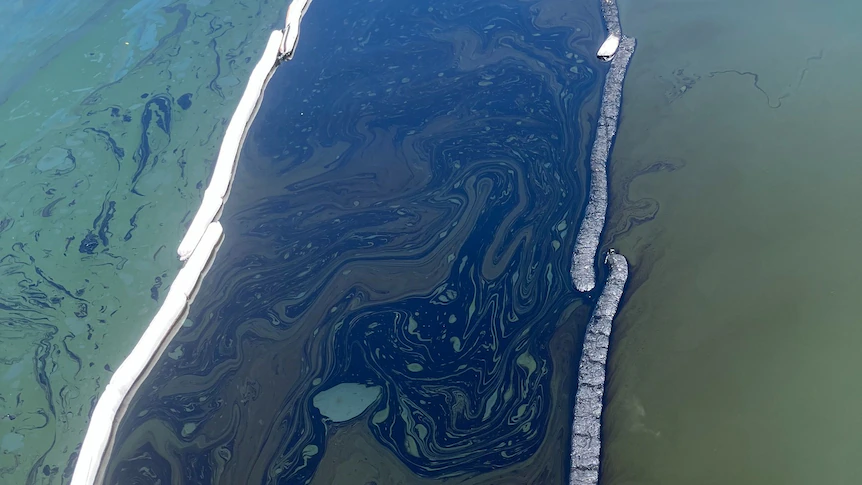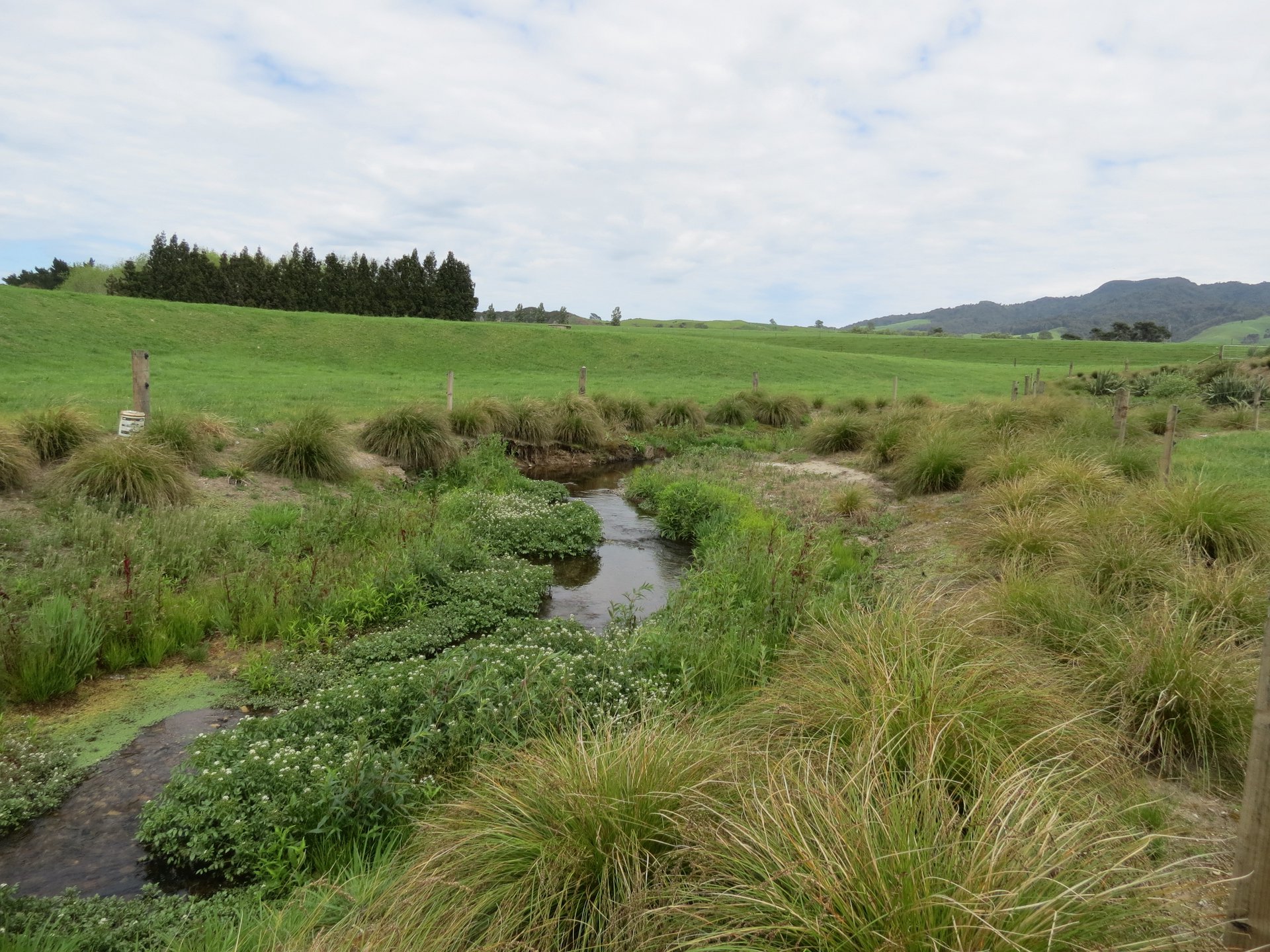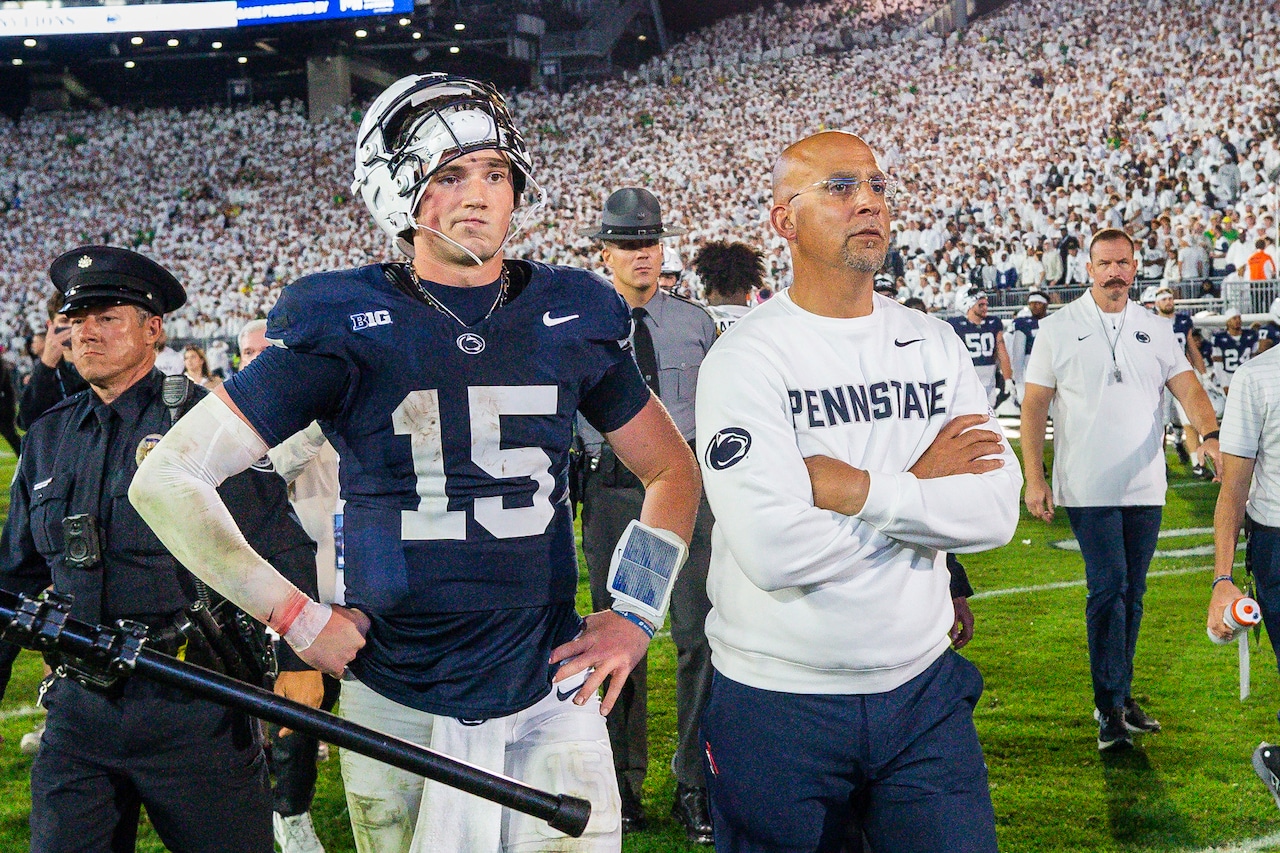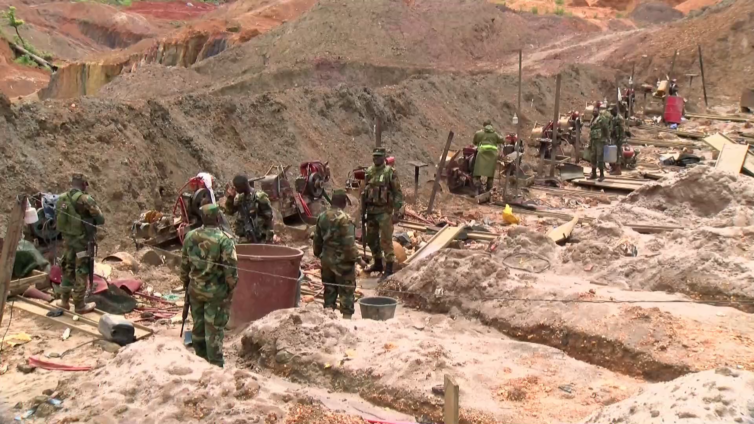By Adam Stephen
Copyright abc

A clean-up is underway in Far North Queensland after thousands of litres of kerosene and bitumen spilled into a creek in Cairns.
The Department of the Environment, Tourism, Science and Innovation (DETSI) said the spill was first reported by building company Boral on Monday.
DETSI said it had since been leading the clean-up of “about 10,000 litres of kerosene and bitumen” at Smith’s Creek.
The spill is impacting Trinity Inlet around the city’s port, which leads out to the Great Barrier Reef.
In a statement, a Boral spokesperson said the spill first occurred at its asphalt plant site over the weekend, due to a “bund safety valve failure”.
“This was discovered after the plant was closed and an unrelated fire in a neighbouring industrial business,” the spokesperson said.
The company said it was working with Maritime Safety Queensland and the environment department on “securing the source” and clean-up.
Concern for reef
Australian Marine Conservation Society Great Barrier Reef campaigner Tanya Murphy, who attended the site of the spill on Tuesday morning, said it was devastating for the environment and human health.
Ms Murphy said a spill this close to the Great Barrier Reef should be impossible.
“When there is so much investment being made in protecting the reef, it beggars belief that something like this can be allowed to happen in the first place,” she said.
Cairns and Far North Environment Centre project officer Shannon Bredeson said the spill would adversely affect the snorkel roots of mangroves, reef fish and crabs.
“Crabs that live in the mangroves … those small little animals really provide the whole foundation of the ecosystem,” Ms Bredeson said.
“Those little creatures play a really important role in sequestering carbon in the mangrove mud, and so it is very, very concerning that we’re hearing these reports about mangroves being around this pollution.
Kerosene impacts
James Cook University marine biologist Jodie Rummer said kerosene — which dissolved in water — could cause “immediate shock” to fish and some invertebrates.
“We might see impaired swimming, reduced predator awareness, gill damage — many species could die outright,” she said.
Dr Rummer said there were also broader implications for the Great Barrier Reef.
“Trinity Inlet is a nursery ground for a lot of reef fish species and prawns … also organisms the [reef] depends on for a healthy ecosystem,” she said.
Dr Rummer said it was important the area was monitored for potential long-term effects, even after the visible signs of the spill were gone.
DETSI said it was focused on protecting the reef.
“Given the proximity of this spill to the Great Barrier Reef, our priority is to ensure it is not further spread … which is why impacted vessels must be cleaned before they leave Trinity Inlet,” the spokesperson said.
DETSI said it was considering potential compliance action against Boral.



